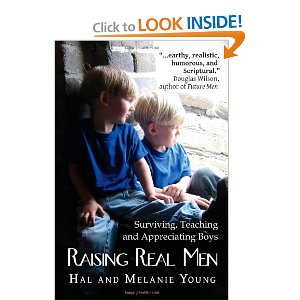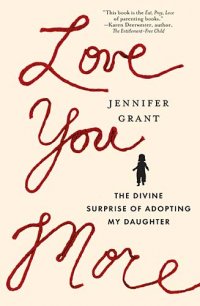
Playing Catch-Up on Book Reviews
 Wow! It has been a long while since we posted book reviews. The following won’t get us caught up, but will get us closer. Enjoy!
Wow! It has been a long while since we posted book reviews. The following won’t get us caught up, but will get us closer. Enjoy!
—————————
The 15 Periods of Bible History
Andy Kizer
Quality Publications, 1993 (68 pages)
My Sunday morning Bible class wanted to do a “survey” of the chronological Bible, trying to piece together how the Bible flows in time. Brother Kizer’s little book was our class book, although I used other sources in addition to this one to help me in my preparation.
Brother Kizer’s book is brief, but its intent is simply to give the basics of what is found in each of the 15 periods discussed. Major characters are given, as are the various texts that comprise each section.
The book is very hard to find, but should become easier to find in the not-too-distant future (that’s all I can say about that here). This book will help the individual gain a greater understanding of the chronology of Scripture, and I highly recommend it for your library to help you in your study. The study questions are a helpful addition, but a teacher will need to make more “discussion-type” questions to use this book in a classroom setting.
——————————-
Bringing Up Boys
Dr. James Dobson
Tyndale, 2001 (269 pages)
What an eye-opening book! Leah and I both read this book to gain greater insight into how to best rear our precious son, Turner.
Dobson’s writing is simple and blunt, but he makes it very clear that it is based upon mountains of research. The reader will find that to be a welcome part of the reading, and will also gain some levity from Dobson’s humor found throughout the book. While the subject is very serious and forthright, Dobson’s humor helps the reader continue through the volume.
The negative of this book, in my mind, was that parts of the book seemed to “chase rabbits” and go in a direction that should have been reserved for another book. For example, there is an entire chapter on single parents and grandparents. Are these needed? Absolutely, but to me, they broke the “flow” of the book.
There are some controversial (and a couple of provocative) statements in the book with which the reader will have to wrestle and that a mom and dad will have to discuss. Overall, though, this is a must-read for those with boys. It has helped Leah and I tremendously, and we hope that, over time, what we have gained from this book will help in some small way, as we seek to help Turner be a man who loves God first.
——————————
Speaking for the Master
Batsell Barrett Baxter
MacMillan, 1958 (134 pages)
This is a quick and helpful read. The basis for this book is to help leaders show others how to prepare lessons and sermons to be presented in public. I read it as a reminder of some important principles in sermon preparation and delivery.
Baxter walks the reader through several lessons that are to be shared in a leadership course, and they run the gamut from simple public speaking techniques to constant reminders of the importance of the Bible in our lessons.
Most readers will find this book to be helpful in basic public speaking technique. For me, a great struggle is introducing and concluding a lesson. The chapter on that aspect of speaking was a great help, and caused me to focus on those portions of my sermons.
The book is out of print, but a paperback version (published in 1979) can be found on Amazon.com for very little money. If you want to “brush up” on your public speaking ability, it would be worth the minimal investment.
——————————-
A Shepherd Looks at Psalm 23
Phillip Keller
Zondervan, 1970 (142 pages)
Over the summer months, I preached a series on the 23rd Psalm. Outside of the text itself, Keller’s little book was my major resource. I readily mentioned in sermons that I was borrowing heavily from Keller’s work to gain insight into the mind and activity of a shepherd.
This book is quite well-known, but it needs to be read more widely. The language is not hard. This is not a scholarly work. If you like Psalm 23, you will gain so much from this little volume. Preachers can easily find sermon material and even good “sub-points” for outlines in the book.
While the series I preached was quite long (3 months), this book helped me keep the information fresh and helpful, because we wanted to learn much about why David worded the psalm as he did. Even if you know the 23rd Psalm very well, I would highly recommend this book.
——————————–
The Eternal Kingdom
F.W. Mattox
Gospel Light, 1961 (351 pages)
Subtitled “A History of the Church of Christ,” Mattox’s work is a must-read. I had heard of it for some time, but finally read it recently in word-for-word fashion. I am so glad I did.
While the reading can be a bit tedious in places, Mattox did a tremendous work in walking the reader through an overview of the Church from Acts 2 to the 20th Century. The book is a history book; thus, it contains many names and dates. However, Mattox’s book is fairly brief when you consider the amount of material he covers, so the reader does not get “bogged down” in detail.
For me, the most helpful part of the book was walking through the Dark Ages, where the glimmer of hope for the Church as God designed it seemed dim. Mattox shows us that there were some times–albeit brief–of hope. Also, for those who like Restoration history, the book will help reinforce your knowledge of that period of history.
If you are a Church history “buff,” or if you aren’t but would like to know some basic information about the history of the Church, this book will help you. While several years old now, the book stands up and will help you see that God’s Kingdom is, in fact, eternal.
———————————
That gets us about half-way caught up. Lord willing, we’ll review more next Monday.




3 Comments
Andy Brewer
Read “The Eternal Kingdom” while in MSOP. Actually had to outline it as well (which was very tedious and interesting). Very good and informative read, though. I have used material from it often. By the way, had some folks from here at Phillips Street with you at Lebanon Road Sunday morning. They spoke highly of the work there. Thought I would pass along their compliments.
Pingback:
Pingback: